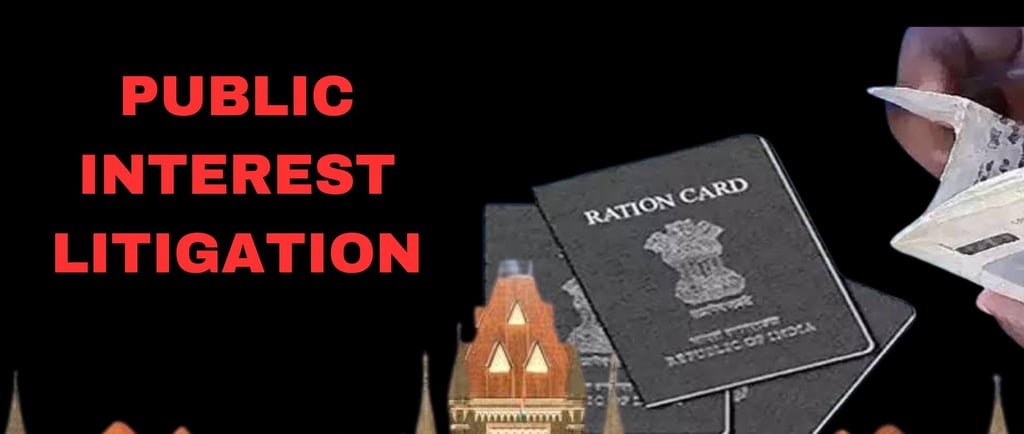Public Interest Litigation Filed in Bombay High Court for Implementation of One Nation One Ration Card Scheme
A Public Interest Litigation (PIL) has been filed in the Bombay High Court, urging the swift implementation of the “One Nation One Ration Card” (ONORC) scheme under the National Food Security Act (NFSA).
10/13/20242 min read


A Public Interest Litigation (PIL) has been filed in the Bombay High Court, urging the swift implementation of the “One Nation One Ration Card” (ONORC) scheme under the National Food Security Act (NFSA). This scheme enables ration card portability across India, aiming to ensure that migrant workers can access essential food supplies regardless of state boundaries.
During the initial hearing on October 11, a Bench comprising Chief Justice DK Upadhyay and Justice Amit Borkar suggested that the petitioner might need to approach the Supreme Court with a contempt petition, as the PIL primarily seeks enforcement of the Supreme Court’s prior orders on the issue. The High Court questioned its role as an executing court and suggested the petitioner consider filing a contempt petition in the Supreme Court. The hearing was adjourned to October 23 to allow the petitioner’s counsel time for further consultation.
The NFSA, enacted in 2013, aims to provide food and nutrition security to about two-thirds of India’s population, covering 75% of the rural population and 50% of the urban population. The ONORC scheme under this Act allows beneficiaries to access subsidized food from any Fair Price Shop (FPS) across the country, addressing the needs of India’s mobile workforce.
The PIL, filed by the Movement for Peace and Justice for Welfare (MPJ) through advocate Hamza Lakdawala, seeks three main reliefs. Firstly, it calls for the implementation of Supreme Court orders issued on June 29, 2021; June 21, 2022; and May 20, 2023, which direct the enforcement of the ONORC scheme. Secondly, the PIL argues for an updated NFSA coverage for Maharashtra, contending that the current coverage based on the 2011 census fails to reflect the state’s increased population due to natural growth and migration. MPJ contends that the coverage for the state’s citizens, currently at 7 crore, requires adjustment to align with present demographics.
Thirdly, the petition advocates for revising the maximum family income limits set under the Maharashtra Food Security Rules, 2019. Presently, these limits are capped at 44,000 INR for rural households and 59,000 INR for urban households, which, according to MPJ, are unreasonably low given actual living expenses. For instance, an unskilled laborer in Maharashtra earning a minimum wage of 16,159 INR per month would exceed the current income limits, preventing many in need from accessing food security benefits.
The PIL also highlights discrepancies across Maharashtra’s welfare schemes. For example, an individual with an annual income of up to 8 lakh INR qualifies for the Economically Weaker Section (EWS) quota but is ineligible for NFSA food security benefits, illustrating a need for a consistent and fair approach to welfare eligibility.
Additionally, the PIL raises concerns about the impact of food price inflation, which has averaged 5.62% over the past decade, compared to a 6.36% average annual wage increase in urban areas. With stagnant income thresholds under the NFSA, fewer people qualify for food security benefits each year, worsening the situation for vulnerable communities.
